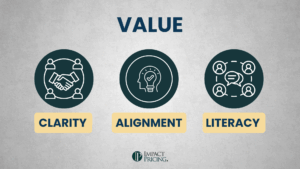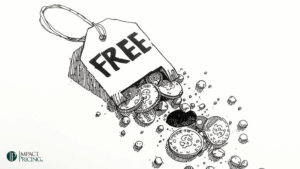Ask pricing experts whether pricing is an art or a science and every one will respond with “both.” The science side is easy to understand (not do). We can run studies, use statistics on actual purchase data, calculate elasticities. These make sense. But what is the art?
I think there are two large areas where the art of pricing shines through. The first is in the application of fundamentals. We have many pricing strategies and tactics in our toolbox. One art is knowing when to pull out any given tool. For example, listening to a company’s situation, do they need to focus their market segment, or pursue price segmentation, or speed up their quoting process? Maybe they need better price escalation processes or more effective sales compensation. All of these can have a powerful impact on average selling prices and margins. It really is an art to determine what to pursue.
My recommendation to pricing people, create a list of your tools. Then, periodically apply your list to your current company or client. Look for the low hanging fruit. Which things might have a large impact with a low cost to implement?
The second art of pricing I first heard from Kate Mandrell. She said this while on the December 13 episode of the Impact Pricing podcast and it struck me as incredibly insightful. The art of pricing is value. Value!
Over the years I have worked with many companies, none of which clearly understood value as their customers perceive it. I’ve worked with many to define their value and it’s not easy. People are so committed to thinking about their product, they can’t think about their customers’ minds.
A traditional artist, say a painter, creates pictures that resonate in the minds of viewers. As pricing people, we may not create products, but we can recognize whether or not our offers resonate with buyers. We can be the artist that looks into the customers’ minds to see what they value. We can teach that to our colleagues so they can create, communicate, and capture more value.
If you’re like me, you’re probably more “left-brained.” You like logic and math. You don’t consider yourself artistic. But, if you learn to help others see and describe value the way your buyers do, you will have a skill very few others seem to have.
We are ARTISTS!















